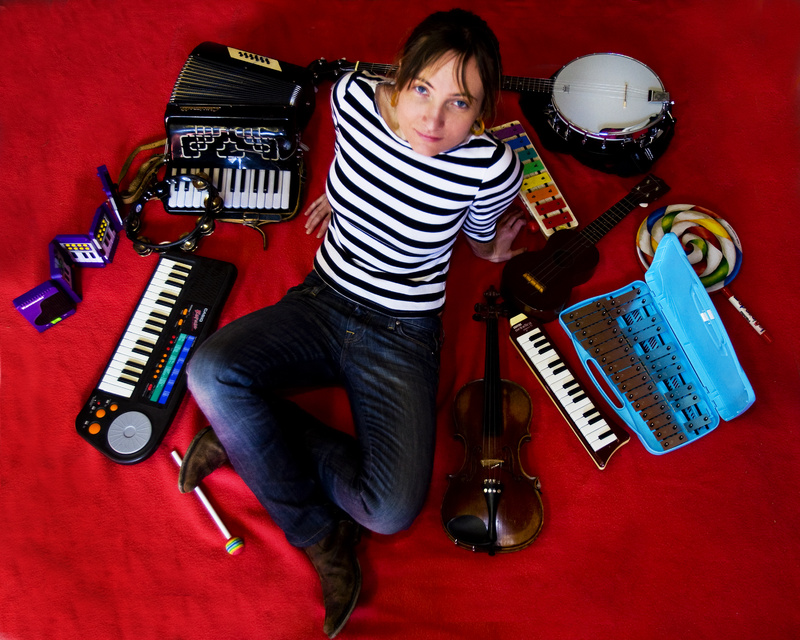Boston-area multi-instrumentalist Audrey Ryan is wearing another hat these days: that of an author.
Burst and Bloom Records just published “The Need to Be Heard,” which is in many ways a bible for DIY musicians. Ryan recounts in brutal honesty her experiences as a recording artist and touring musician.
The book also includes interviews with several other artists and music biz types who have been through it all, from actual fame to playing to empty rooms. “The Need to Be Heard” is a fascinating read, even if you’re not a musician.
Ryan will be appearing at the Oak and the Ax in Biddeford next weekend to celebrate the book’s release, play some songs and field questions. In the meantime, here’s the skinny on what else she is up to and what it took to bring “The Need to Be Heard” to life.
What’s happening with you musically? Your last CD, “Thick Skin,” came out in March, right?
Yes, and I’m still getting it out to folks and have yet to tour in Europe with it but will soon. It’s pretty much the record I always wanted to make; it’s kind of over the top multi-tracking. Basically, I created an orchestra of sorts. It was a lot of fun to keep adding new layers, like vibraphone. The next record will likely go back to a more organic vibe more like my live shows. I’m doing a lot of writing, I mean, not just writing music. I wrote a screenplay this summer that I just finished, and I have a book I’m working on about fishing lore in Down East Maine that is ongoing. Musically, I’m hoping to write some new songs and record the ones I haven’t gotten around to recording yet.
What was the timeline for “The Need to Be Heard”?
I started writing it in 2008 and finished it in 2009 or 2010; I can’t even remember now. I let it sit around for a bit because – as usual – as soon as I finish a project, I sometimes get exhausted and lose interest. Plus, it’s hard enough to get music to listeners, let alone finding a way to get a book published and for people to read it. I finished editing it this summer and got copies shortly after from the label that is releasing it, and now I have a big box of them to sell at shows, and the label (Burst and Bloom Records) sells them online.
What has the response been to the book so far?
Not that many people have actually read it yet, but the response has been great from those who have.
It’s not exactly a “self-help” book, but if you’re a DIY musician, then it’s probably going to really resonate with you. I think it has the ability to help other musicians come to grips with what it’s really like to be in this business and where they are in their own process.
Of all the people you interviewed, who was the most compelling?
Ian MacKaye (of Fugazi and Minor Threat) blew my mind. That guy is so smart and thoughtful and anti-corporate in such a mindful way. It was refreshing and frightening to interview him. At some points in the interview, I felt like he was interviewing me, as in I didn’t feel like I was in control and was just trying to keep up with him intellectually.
What are the similarities between writing a book and making an album?
They are both a labor of love. It takes a lot of effort to write songs and record them in such a way that people will understand the core of what you’re trying to convey musically. And similarly, when you write about your experiences or do an interview, you are trying to show and tell to an invisible audience what your feelings are on the subject.
It’s a lot to convey, but in both mediums I do what I’ve always done. I’m as raw and honest and transparent as I can be. I don’t believe in writing a song because I think other people might like it, and similarly, I can’t write a sentence that I don’t think is honest to my experience. It doesn’t mean people will necessarily relate to it, but I think there’s much more of a likelihood that they will, because it’s so raw and real.
What’s the most important message you hope people take away from reading the book?
That you are not in any way a failure at art if you don’t make a living off of it and that you might very well be better off not making your living off of your art if you want to live a healthy and happy life. I used to think you had to make money at art to be fulfilled or to have some measure of success, and now I feel that that is what ruins it for a lot of people. There has to be a way to channel all that energy into a place that nurtures your soul and doesn’t even have to touch the airwaves. The world is a turbulent and thankless place sometimes. This book is really just about the journey.
Staff Writer Aimsel Ponti can be contacted at 791-6455 or at:
aponti@pressherald.com
Send questions/comments to the editors.




Comments are no longer available on this story